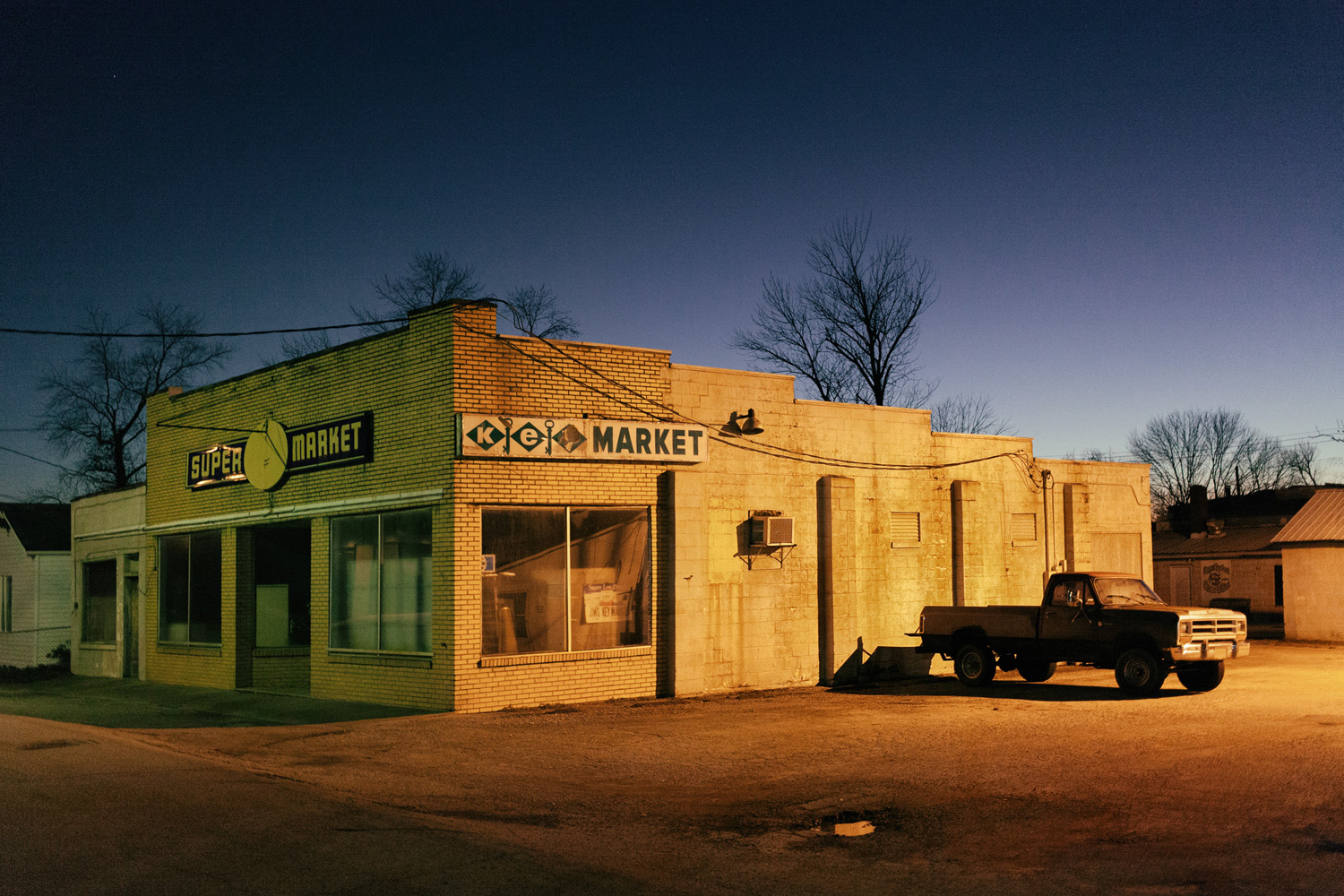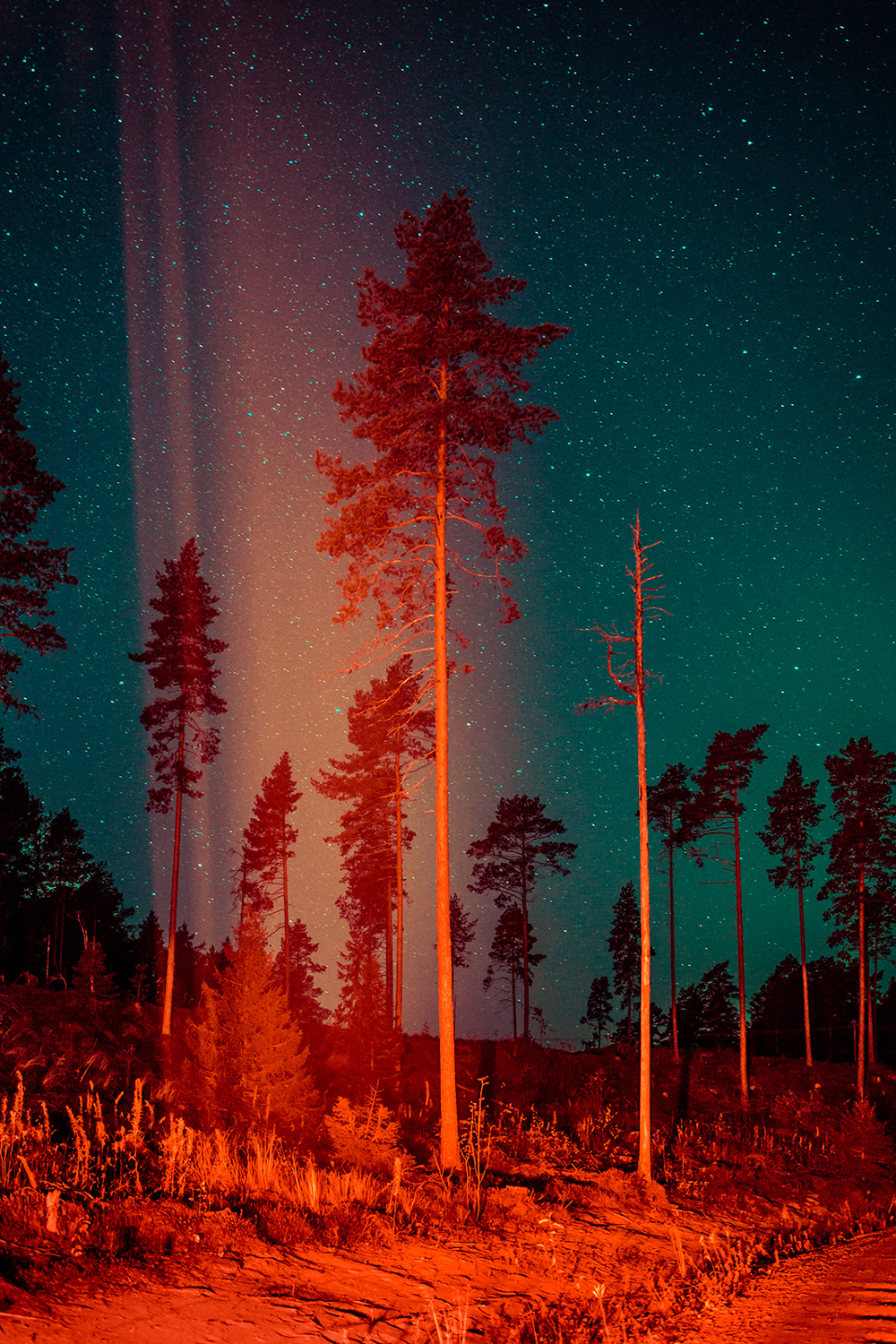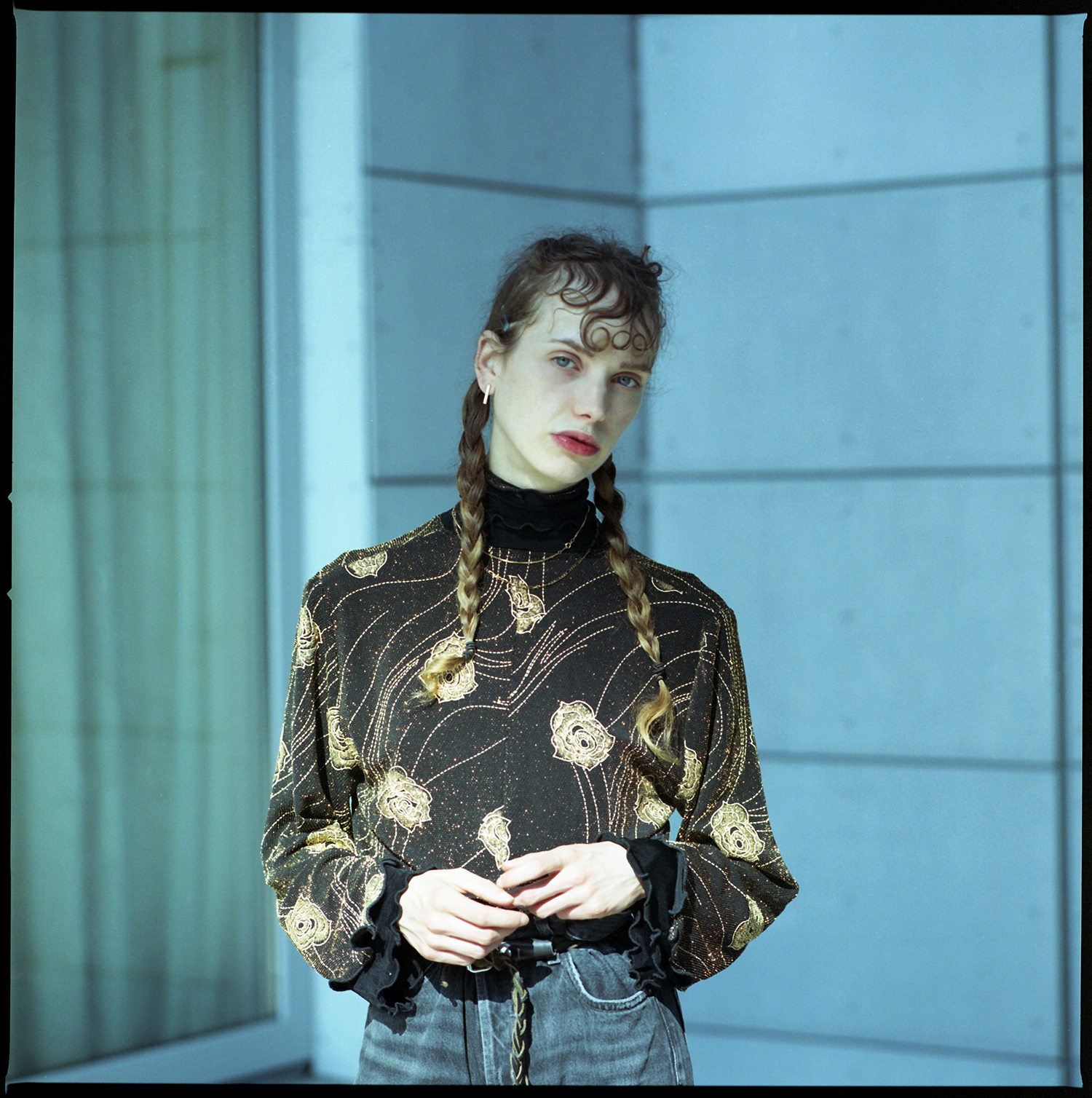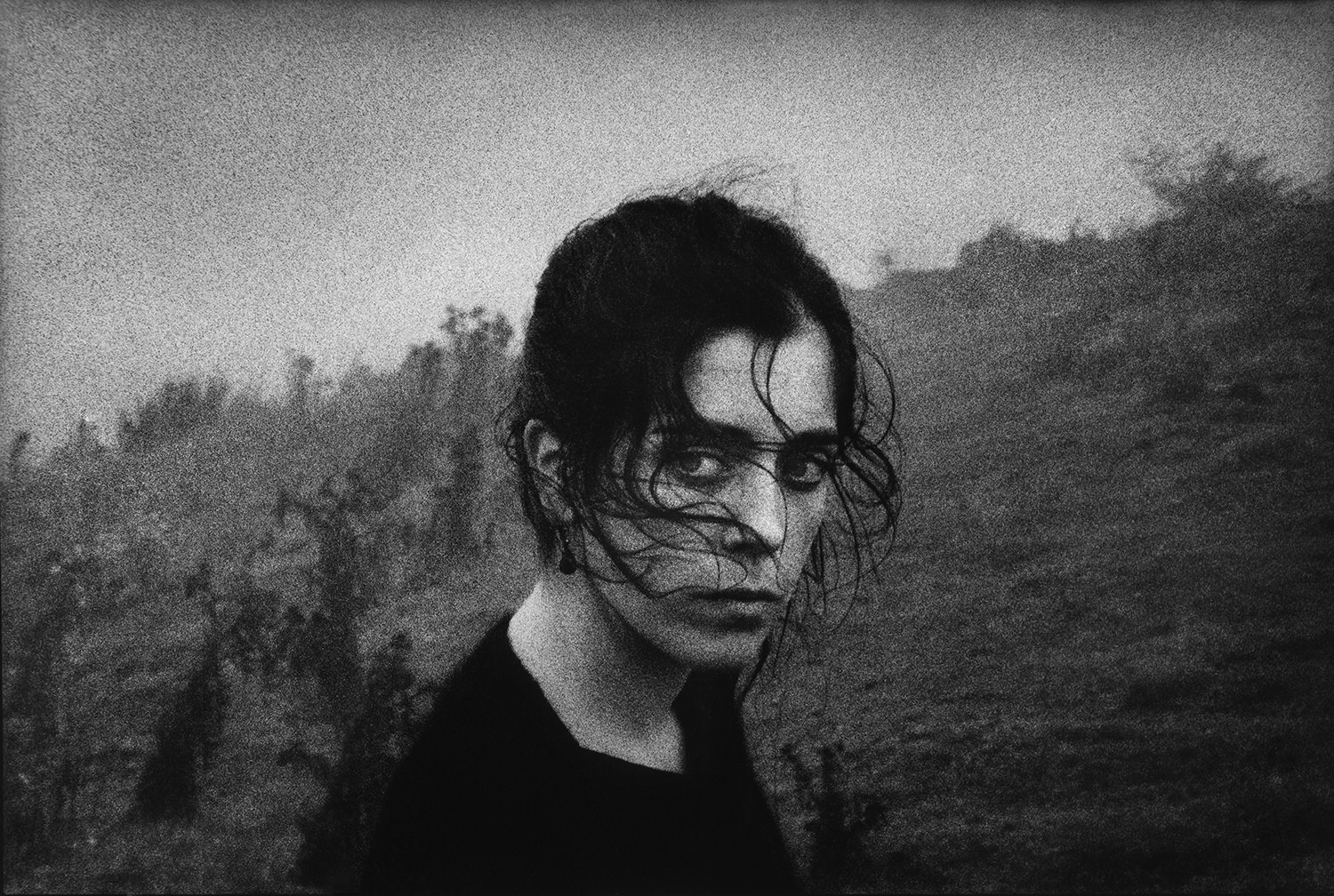What is the origin of your project and what made you want to do it?
To put it briefly, there are over 45 towns in the United States called Lebanon, and I drove around in a caravan for 5 months to visit them all. Aside from the initial interest in the name, there was also a bit of history and politics that made me want to do the trip. Back in 1955, seven mayors of Lebanon visited Beirut for a couple of weeks and they each went back with a cedar tree sapling. I wanted to find out what happened to those trees.
As to politics, I chose the timing of my trip, between Oct 2016 and Mar 2017, to coincide with the presidential elections. I had thought I would photograph and interview people from around the country, discussing what it was like having the first female president; that’s what all the polls had indicated until election day. The turn of events with Donald Trump being elected gave a different feel to the trip because most of the Lebanon I visited were in places that voted for him, so I tried to understand why they did so, without any prejudice, and that part taught me a lot about the United States.
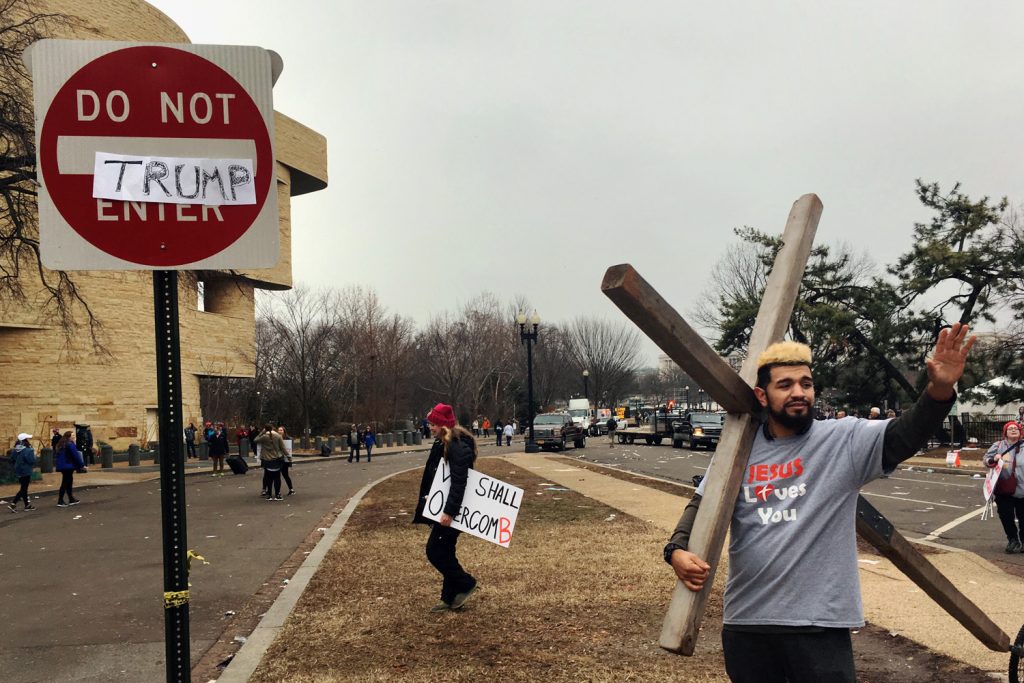
« I needed just about any excuse to quit my job and take photography full time. A bad work trip to Baghdad took care of that, so I just resigned, dropped everything, and went on the trip. »
I had lived in the US for 4 years back when I was working and going to graduate school in San Francisco, and that’s where I found out about Lebanon, but I figured this would be a photo project I’d do after I retired. I’m an engineer with an MBA so I was focusing on my career. I worked in the finance industry and software development for about 15 years, never thinking about photography other than it being a hobby. But my attachment to it grew to the point where I needed just about any excuse to quit my job and take photography full time. A bad work trip to Baghdad took care of that, so I just resigned, dropped everything, and went on the trip.
How long did it take to prepare and research?
The initial research took me about three months; I was mainly trying to find out where I could park the caravan to sleep around these towns, but I was also looking into the history of these towns to try and find an angle to photograph there. The bulk of the research, though, was done during the trip. At every town I’d visit, I’d go to their local library and go through their archives and newspapers. I focused on the seven ones where the mayor had visited Beirut, and much of the papers are still on microfilm, so it’s not as simple as doing a Google or keyword search, you’d have to go through slides one by one. It was a slow process but interesting nonetheless.
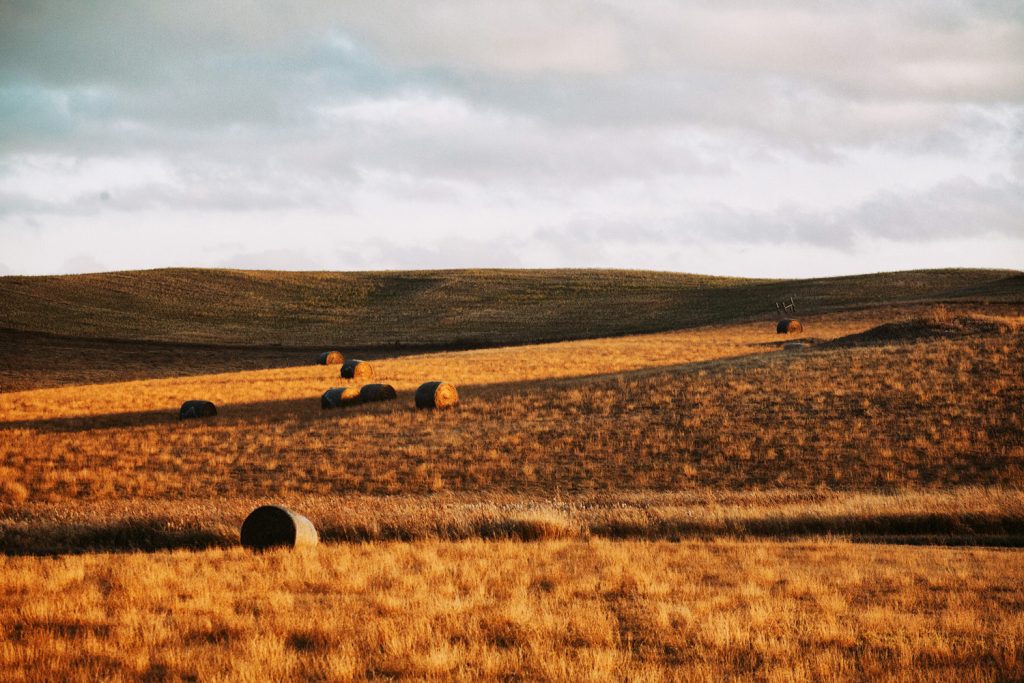
Can you tell me how you felt on the first day / first night in your van? your memories, your emotions?
I was scared as hell. I had rented a caravan from a guy in Seattle. By the time he was done giving me an instruction tour, it was already dark. I hadn’t driven anything bigger than a 4 by 4 before and this RV was huge by comparison. So I asked the guy if it was okay to sleep in the RV while still in his driveway until the next morning and he said ok. It was kinda rough night because all these doubts came back to me. I had a big apartment and a fairly comfortable life back home and there I was, having given it all up and depleting all my savings, in a tiny motorhome that was going to be home for months. And then the next morning when I drove off, I would stop every hour or so because I was breaking into sweats from driving a vehicle so big and anti-aerodynamic that any gust of wind on the highway would push me into a different lane.
I haven’t thought about that first day since then, but in retrospect, I find it funny now. Because by the end of the trip I remember thinking that the motorhome was very roomy on the inside and that if I did a second trip, I would go for something smaller since I didn’t need that much space anymore.
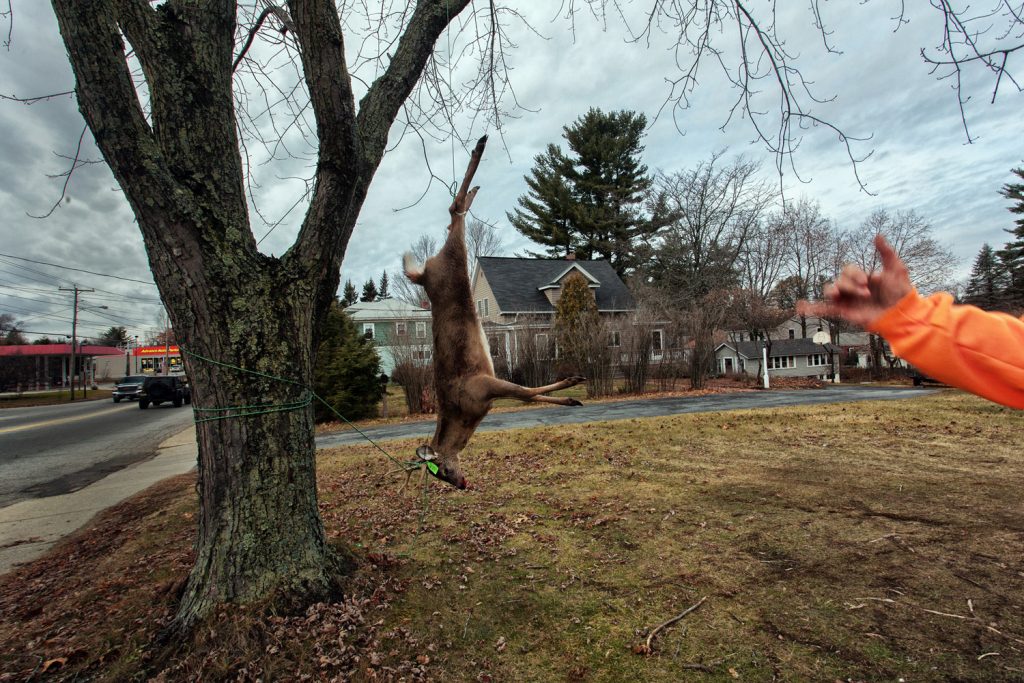
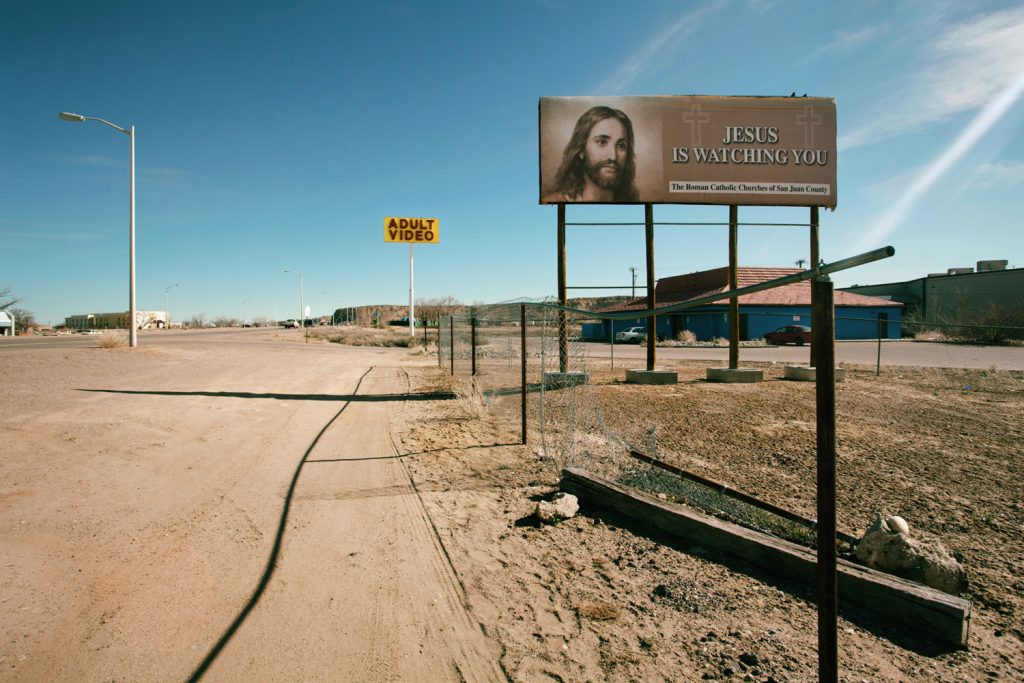
I followed this exciting project on FB where you shared stories along the road. Tell me what story touched you the most?
On new year’s eve in 2016, I was in Louisville, Kentucky. I had parked at a Walmart’s parking lot for the night, as I usually did. But I didn’t want to spend the evening by myself so I went to the Waffle House across the street, which is a cheap and greasy diner chain they have around the country. I was already not feeling my best because I had spent Christmas away from home the week before and I was still a bit sick from having lunch at a $6.99 all-you-can-eat Chinese buffet that had me spend the afternoon in the bathroom, let’s call it that. So basically I was cranky as hell.
I came into the restaurant, sat down, then left for a bit to check out a car accident that had the police, ambulances, and firetrucks rushing to the scene. When I got back, they had given the area where I was sitting to a large group of drunk people and I was seated somewhere else. One of the guys in the group, a big dude in his 40s wearing a cowboy hat, was annoyingly loud. I also noticed that he was eating his steak and eggs with his hand, which I found odd. I was visibly pissed and he must’ve seen the dirty looks.
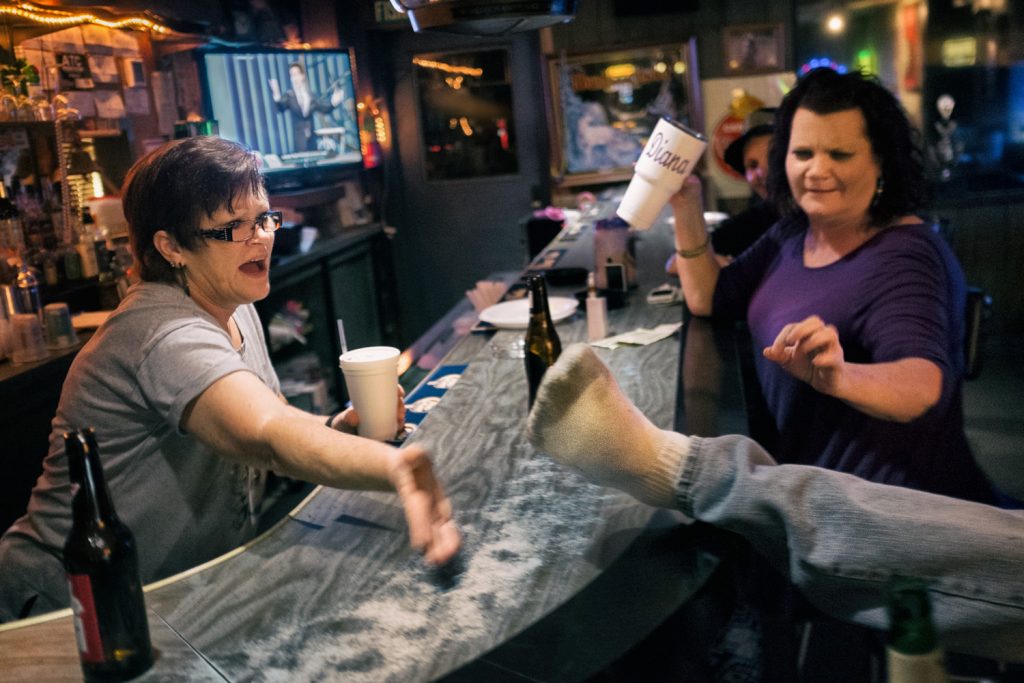
« Random acts of kindness are moving to me, and this was exactly that. I had so many similar experiences on the road, and this affected me a great deal. »
When they were ready to leave, he hopped off his stool and I noticed that his left arm was missing. I could only see his right side when he was seated. I felt like a jerk. Later at night when I was ready to leave, I asked for the check and the waitress told me that it was all taken care of. The one-armed cowboy had paid for my dinner and asked her to wish me a happy new year. He must’ve felt sorry for me sitting in a corner alone having dinner, I suppose, and maybe he figured that my looking angry was due to that. Random acts of kindness are moving to me, and this was exactly that. I had so many similar experiences on the road, and this affected me a great deal.
The one that leaves you with a bad memory?
This has to be when my RV got stolen in Albuquerque, New Mexico, 3 days before I was due to return it to Seattle. I was numb all over, having lost all my equipment, clothes, and the mementos I was given on the way. I spent the day in a motel, in bed, unable to process anything. Luckily it was found by the cops at night and I was able to recover most of my stuff, but the RV itself was in such bad shape (the thieves didn’t lose much time trying to convert it into a meth lab) that I had to leave it there.
On a more positive note, the cops allowed me to be there with them while they were lifting fingerprints and doing their forensic search, so I got to take my mind off of it by photographing them in action. But still, that first day when I thought I had lost everything was just awful, an experience I wouldn’t wish on anyone.
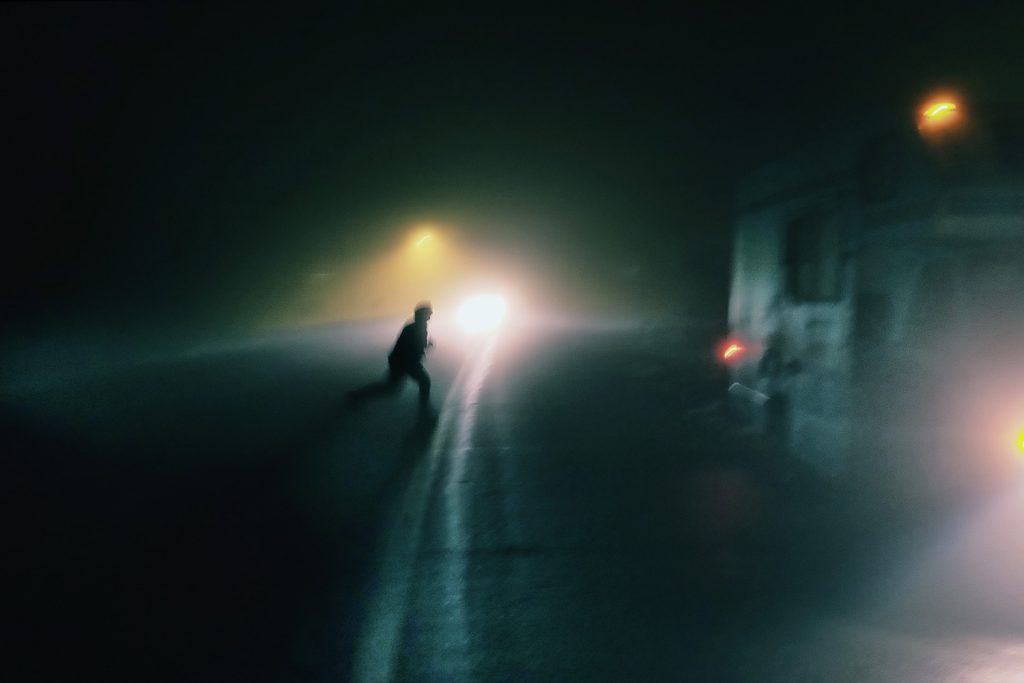
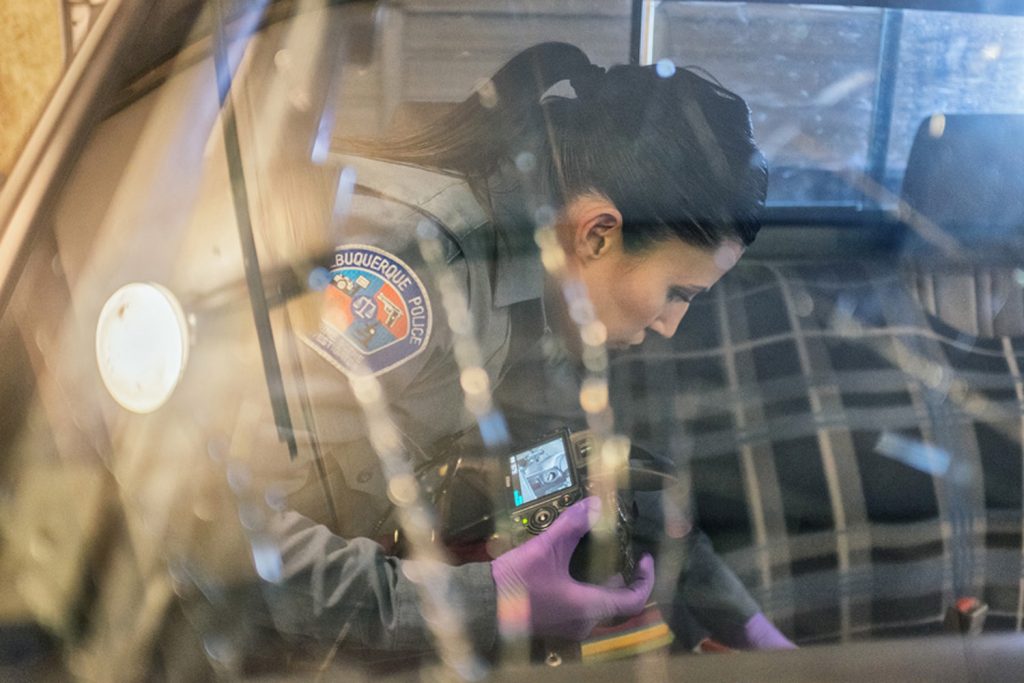
Did you manage to follow your initial plan, your departure route? What camera did you use?
I had my route planned – with GPS coordinates — from before I arrived in the US. For the most part, I followed that route, but I did 3 detours. In November I was in Michigan and I was feeling a bit homesick, so I messaged my friend David Horton and asked him if I could spend Thanksgiving with him and his family in Boston. It was a 12-hour drive and it was great. We then spent a few days in Lebanon, Maine which isn’t too far from Boston and it was one of the highlights of the trip for me.
The second detour I did was when I drove from Tennessee to Washington, DC to photograph Donald Trump’s inauguration and the Women’s March the next day. The last detour was when my RV got stolen. As I had to leave it there, I rented a small car, stuffed it with whatever I had, and instead of going to Seattle to return the RV, I zipped to California as fast as I could before coming back home. This had me miss going to Lebanon, Colorado. Maybe I’ll visit it on my next trip. Regarding equipment, I shot digitally, mostly with 2 cameras. A small Fuji X100T (35mm fixed lens) for indoors and shooting in bars (it’s less intimidating than a big cam), and a Canon 5D Mark II with a 17-40mm lens when shooting landscapes, parades, or demonstrations.
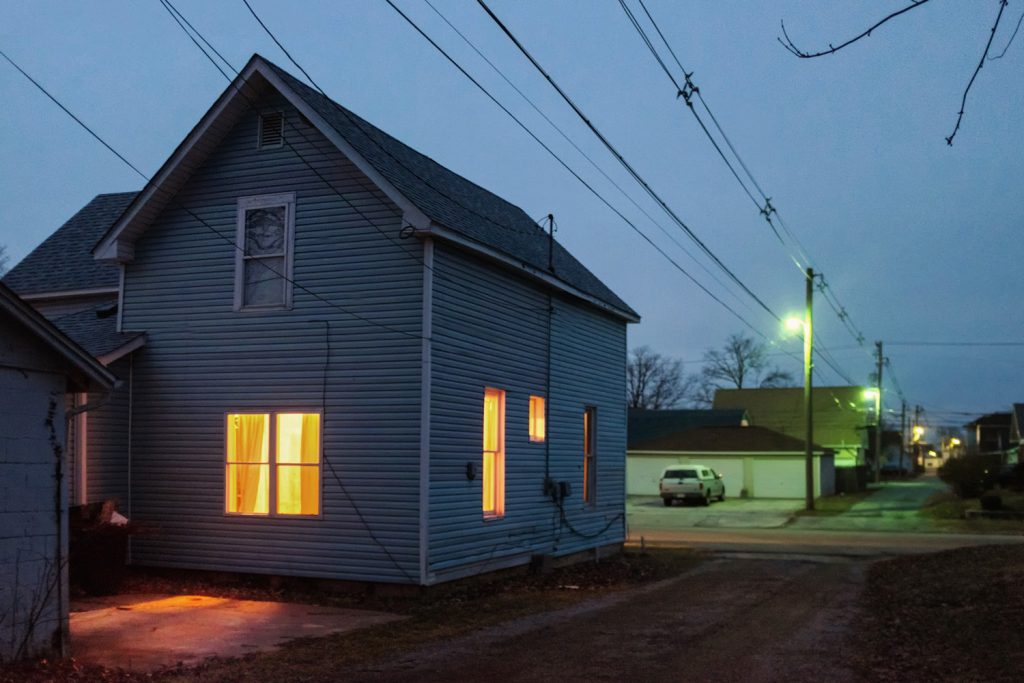
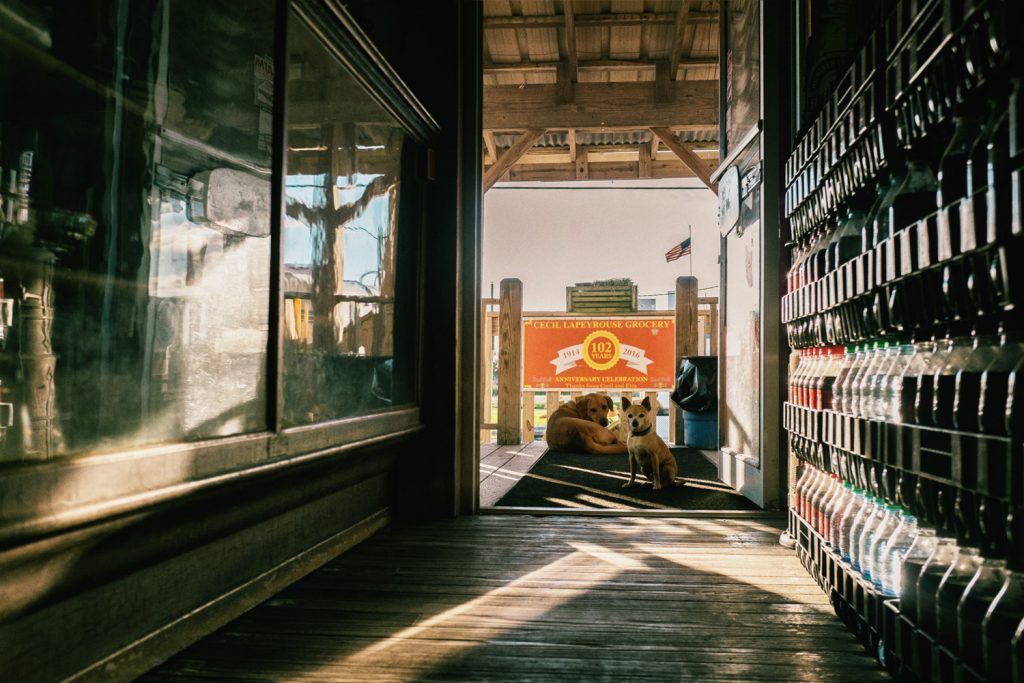
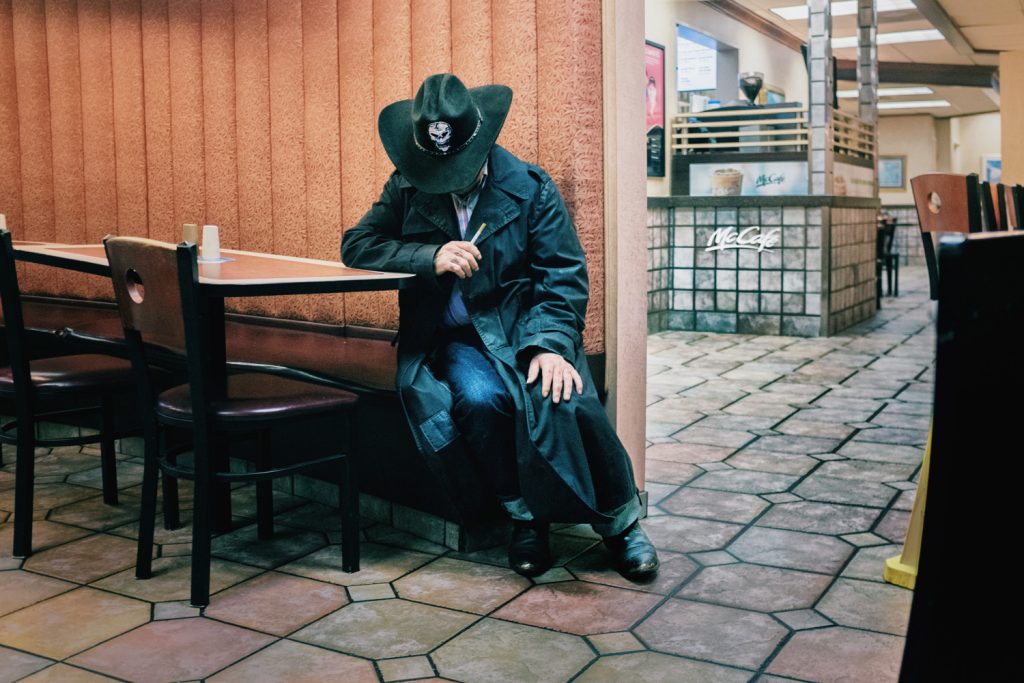
Are you planning to make a book? an exhibition? What is your next project?
A book is definitely on my mind. But I’m a bit unsure about the format, whether it’ll be a photobook, a travel narrative with photos, or just split into two books to focus on each medium separately. I’m taking my time thinking about it because I want to repeat the trip next Summer, and if that happens I can be more picky about the material to include. As to an exhibition, I’m working on doing one in Beirut soon, and I need to be less lazy about it and find a decent space already. I want to repeat the trip; five months on the road were not enough. The focus wouldn’t be predominately on the Lebanon towns in the same way it wasn’t for the first trip. But I would visit some of them again to plant cedar trees from home as many mayors have requested. I’d also like to explore cities where immigration from Lebanon in the late 19th and early 20th century took place. I’m a history buff, so the idea is exciting to me. Of course, this will all depend on whether I can find funding or not, but hopefully, I will.
What is your favorite photo of this project?
I took this photo at dusk in Lebanon Junction, Kentucky, and I like it for the simple reason that it exemplifies how most of the towns I visited looked, empty and frozen in time. You can tell that they’ve seen better days and when.
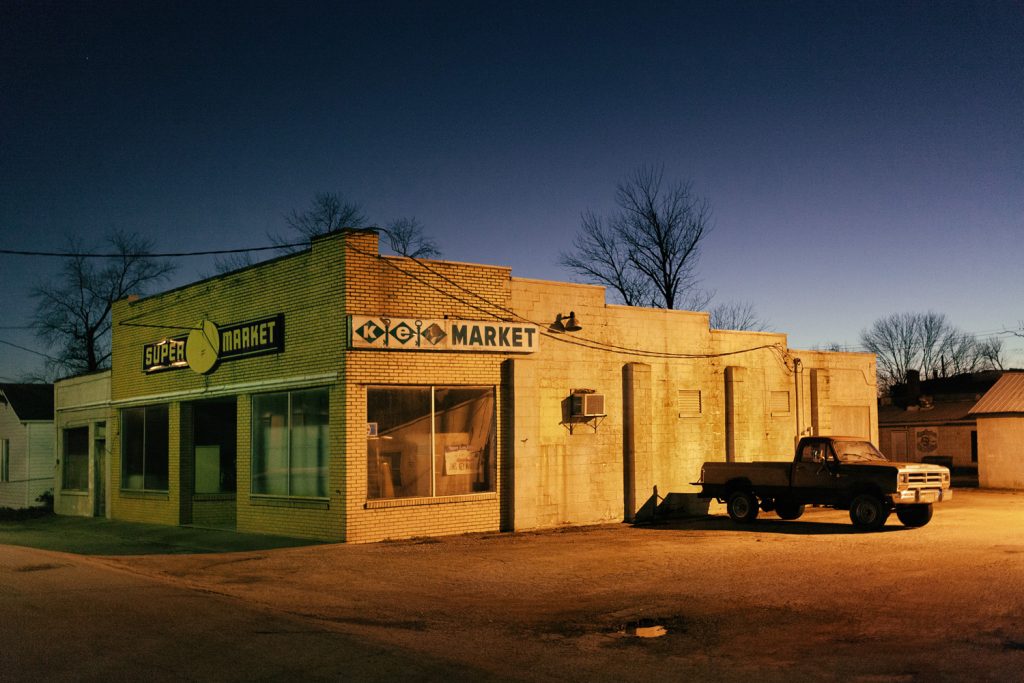
It seemed to me in general that you had a nice welcome from the people, can you tell me more about your relationship with people?
Before the trip, I had candid Street Photography almost exclusively. Other than liking the format, it was because I did not like talking to strangers, being relatively shy and borderline anti-social. I had to force myself out of this behavior on the trip because I couldn’t speak with the people. Still, when approaching them, I’d do a lot of listening and very little talking and this helped a lot. People like to tell their own stories and they will take a liking to someone who listens with interest, so that made things easier for me. Thinking about it now, I gotta say I feel fortunate to have met so many great characters around the country. But I also need to be completely honest about it in that it took a lot of mental energy, especially in the beginning, to overcome this aversion to talking to strangers; I spent a decent amount of time alone in my RV following these encounters, just to ‘recover’. Those who have an easy time chatting up people would find this odd maybe, but for loners, this is necessary.
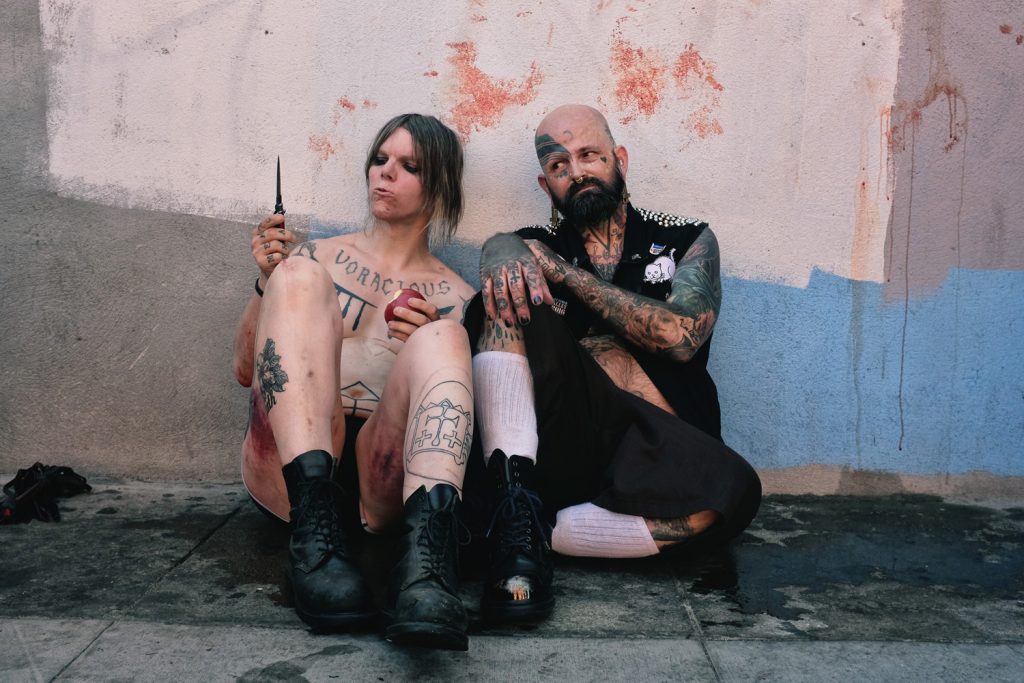
What is the place of the photo as an art form in Lebanon? there is a community? exhibition spaces?
Art certainly has its place in Lebanon. There are a lot of exhibition spaces and there’s always a show to see somewhere, especially in Beirut. But that’s more about traditional media like paintings or sculptures. Photography, though, hasn’t been generally embraced yet by curators or exhibitors as a legitimate art form and, for those who have, the shows are still marketed towards the traditional art collectors here, i.e. the ‘old aristocracy’, the strictly French-speaking, well-to-do older generation. Thankfully this has started to change in recent years, with pop-up shows targeted towards a younger post-war crowd. Also, the ‘Beirut Center of Photography’ was started last year by a group of local war-generation photographers, and they’re doing a great job at legitimizing the medium as a separate art form and bringing the photo community together.
Tell me more about your photographic influences.
These have changed a lot over the years and will continue to do so, I’m sure. But I remember my first big influence was Mario Giacomelli and his Dancing Priests series. Then it was Christophe Agou and his ‘Life Below’ series on New York City subway riders and later his ‘Face au silence’ book on the life of elderly farmers in the depopulated Coreze region in France. These days I’m also drawn more to the work of old “Life Magazine” photographers; I love their humanism and unpretentious approach. Eugene Smith, Gordon Parks, Burk Uzzle, these folks. Philippe Halsman as well when there’s a craving for surrealism and visual mastery.
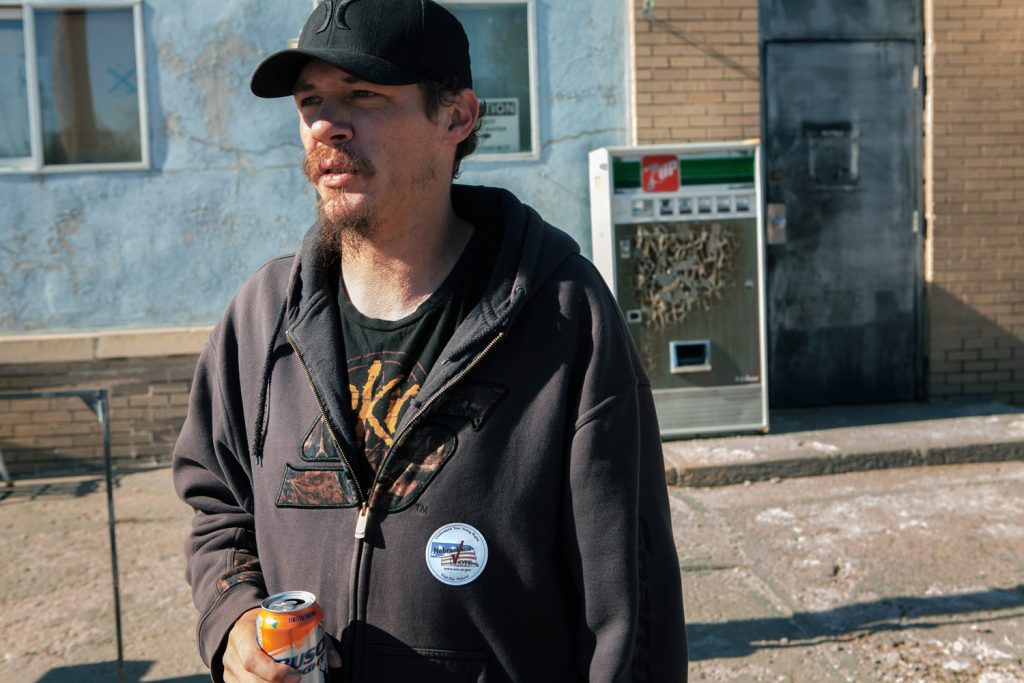
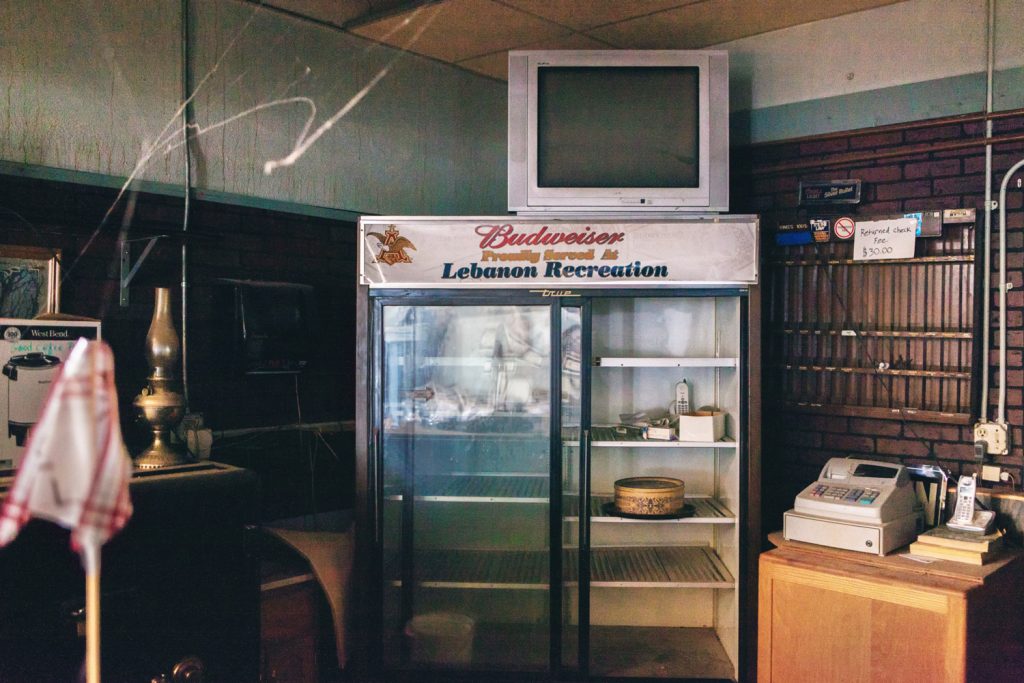
What essential advice would you give to someone interested in photography?
Ditch the ego, support other photographers, and study the history of photography by continually looking at photo works from all around the world.
Your top 3 essential photobooks that everyone should have?
I’m not a big fan of lists, so I’ll pick three favorite books that manage to combine great storytelling with visual poetry, something that I aspire to be better at:
Face au silence, by Christophe Agou
The Adventures of Guille and Belinda and the enigmatic meaning of their dreams, by Alessandra Sanguinetti
Wonderland: A fairy tale of the Soviet Monolith, by Jason Eskenazi
(Note that is a list nonetheless)
Interview Kalel Koven / In Frame
Photographer’s Links: fadiboukaram.com / Facebook / Instagram

